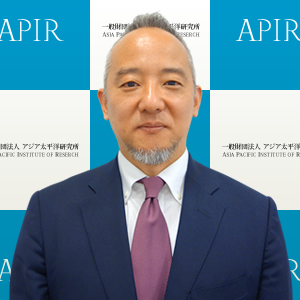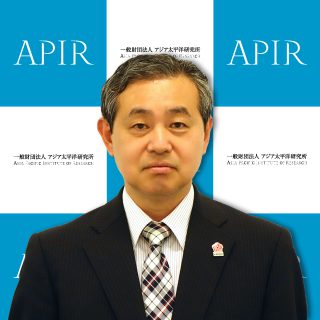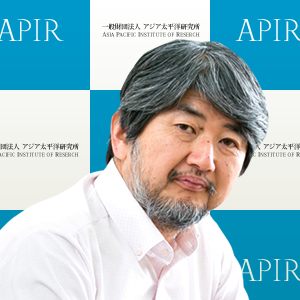APIR conducts research projects along the following 3 axes
Asia Pacific

Research Projects
2022-07-25
- 2022FiscalYear » Asia Pacific
ABSTRACT
Research leader:
Fukunari KIMURA, Professor, Keio University & Chief Economist, Economic Research Institute for ASEAN and East Asia (ERIA)
Research outline:
Taking into account the changes in the international trade system caused by the Ukraine crisis, the U.S. mid-term election, and the National Congress of the Chinese Communist Party, among other factors, we analyze various aspects of the future of the free trade system. The China-U.S. trade war and the rapid progression of the digital economy have considerable impact on multinational firms, and the situation is evolving rapidly. In view of these developments, we conduct forum-style workshops to provide businesses with the latest information.
Research Leader
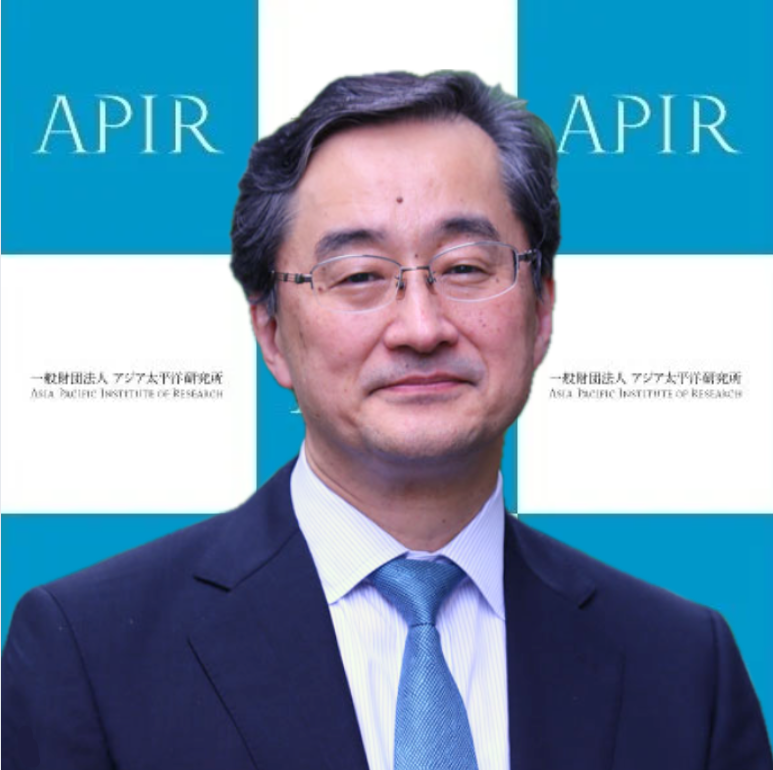
Senior Research Fellow, APIR / Professor Emeritus and Senior Professor, Keio University / President, Institute of Developing Economies, Japan External Trade Organization (IDE-JETRO) / Senior Research Fellow, Economic Research Institute for ASEAN and East Asia (ERIA)

Research Projects
2022-07-25
- 2022FiscalYear » Asia Pacific
ABSTRACT
Research leader:
Kenta GOTO, Professor, Faculty of Economics, Kansai University
Research outline:
With the 2025 Osaka-Kansai Expo drawing near, firms in Kansai, including small and medium-size enterprises, are facing the need to implement the SDGs. A notable example is the shrimp farming business. Based on field research, we identify challenges and propose solutions for a successful implementation of the SDGs. We also analyze issues concerning implementing the SDGs in the textile industry, including human rights.
Japan and Kansai economy

Research Projects
2022-07-25
- 2022FiscalYear » Japan and Kansai economy
ABSTRACT
Research leader:
Hisakazu MATSUSHIGE, Professor, Faculty of Economics, Takamatsu University, and Emeritus Professor, Osaka University
Research outline:
We may not avoid social transformation enforced by the recent innovations such as AI and new digital technologies and further accelerated by the sudden emerge of COVID-19 pandemic. We discuss how firms can adapt to this new era of radical change in occupations and tasks and investigate how individuals are to reshape their skill and redesign their career paths, accordingly.
Research Leader
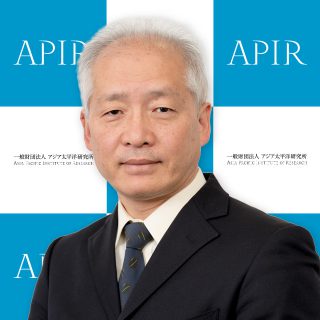
Professor, Faculty of Business Administration, Takamatsu University / Professor Emeritus, Osaka University

Research Projects
2022-07-25
- 2022FiscalYear » Japan and Kansai economy
ABSTRACT
Research leader:
Yoshihisa INADA, Director of Research & Director of Center for Quantitative Economic Analysis, Asia Pacific Institute of Research (APIR)
Research outline:
We analyze the reasons why the 1970 Japan World Expo failed to induce economic growth in the Kansai region. Based on the results of our analysis, we develop a strategy aimed at reversing the prolonged stagnation of the region by taking advantage of the Expo 2025 Osaka-Kansai. Specifically, we hold discussions with the economic community and the government in order to devise new tactics for attracting investments and human resources to potential growth industries in the Kansai region.
Research Leader

Director of Research & Director of Center for Quantitative Economic Analysis(CQEA), Asia Pacific Institute of Research and Professor emeritus, Konan University

Research Projects
2022-07-25
- 2022FiscalYear » Japan and Kansai economy
ABSTRACT
Research leader:
Yukinori, FUJIHARA, Professor, Osaka University of Economics and Law
Research outline:
A revision of the quarterly disclosure system, aimed at encouraging short-term profit orientation, is an important part of Japan’s “New Capitalism” policy. The Financial System Council announced its intention to unify the quarterly disclosure system with the financial statements, and is planning to compile concrete items to be revised within this year. Such a revision necessitates thorough discussions based on sufficient empirical evidence, as well as weighing the pros and cons of abolishing mandatory disclosure. We conduct an empirical analysis using data on Japanese listed companies, and we provide evidence on the impact of the revision of the quarterly disclosure system.

Research Projects
2022-07-25
- 2022FiscalYear » Japan and Kansai economy
ABSTRACT
Research leader:
Yoshihisa INADA, Director of Research & Director of Center for Quantitative Economic Analysis, Asia Pacific Institute of Research (APIR)
Research outline:
Facing the evaporation of demand caused by COVID-19, tourism strategies have been forced to make a major shift from an emphasis on inbound tourism to high value-added tourism for both domestic and inbound visitors. In view of this shift, we analyze the current situation of municipalities and DMOs in the Kansai region, and examine issues and directions for solutions. We will also work to quantify the brand power of tourist destinations and create indicators that show the contribution of various environmental factors to the attractiveness of tourist destinations
Research Leader

Director of Research & Director of Center for Quantitative Economic Analysis(CQEA), Asia Pacific Institute of Research and Professor emeritus, Konan University

Research Projects
2022-07-25
- 2022FiscalYear » Japan and Kansai economy
ABSTRACT
Research leader:
Shinji SHIMOJO, Professor & Director of the Cybermedia Center, Osaka University
Research outline:
Building long-term relationship with customers is required as part of solutions to issues using digital transformation (DX), along with increased social roles of firms including SDGs. The relationship between a city and its residents is a similar issue. In view of this similarity, we analyze the characteristics of the “subscription” business model, which uses data to build long-term relationships with customers, and we discuss how this model can be applied in designing an attractive smart city.
